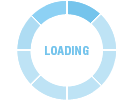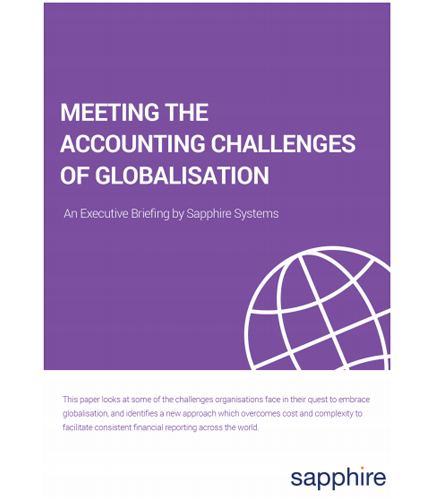
PROCESSING. PLEASE WAIT...


White Paper: Sapphire Systems
Globalisation is seen as a trend, although barriers abound in the field of accounting as it has been changing dramatically.
Globalization of the business environment presents many challenges in accounting, with significant differences in auditing practices, as rules, regulations, taxation and governance frameworks vary from region to region.
In such conditions, meeting the accounting challenges is becoming hard, thus the need arises to answer a few questions such as:
What are the key things to look for when evaluating a global accounting system?
What should you look for when selecting a global accounting solution?
What are the key changes required in accounting and accounting methods?
What is the role of International Accounting Standards?
Does the consulting team or partner have a presence in all of the countries you operate in?
This whitepaper looks at some of the challenges organizations face in their quest to embrace globalisation, and identifies a new approach which overcomes cost and complexity to facilitate consistent financial reporting across the world.
By: KINGSTAR
OEMs traditionally used DSP-based hardware, plugged into a PC, for motion control. But new software-based solutions have challenged this approach, claiming equal or better performance at lower cost. How does soft motion really compare to hardware? In this whitepaper, we break it down component-by-component for a down-to-the-dollar cost and performance comparison. Topics covered include: Challenges with the traditional hardware approach How soft motion solves those challenges Performance comparison: calculations, axis control, adding axes and machine vision Cost comparison cost and length, ability to scale, necessary hardware Cost-per-item breakdown showing that soft motion costs 44% less than hardware Learn how software-based motion control actually compares to hardware with real-life scenarios and real-dollar cost comparisons. If you’re considering soft motion, start here.
By: Aberdeen Group
Today, the challenge for many organizations is that the variety of data needed for many innovative analyses is often locked away within other functional areas. Even with the inherent value in traditional customer applications, presently most compelling insights are actually derived by combining multiple different types of disparate data. This whitepaper focuses specifically on the sales and marketing functions to understand how this approach can draw us closer to our customers and elevate business performance. Several common characteristics that helps to exploit the expanded variety of data: Propensity to share data Executive-level support Self-service data access


 2026 All Rights Reserved | by: www.ciowhitepapersreview.com
2026 All Rights Reserved | by: www.ciowhitepapersreview.com